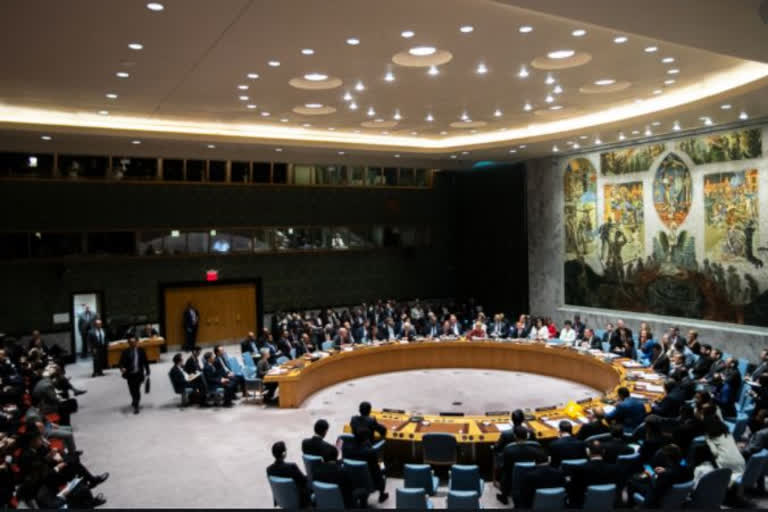New Delhi:As India begins its two-year tenure as a non-permanent member of the United Nations Security Council, expectations are set high as experts told ETV Bharat that India’s two-year tenure ship will set the direction of India’s foreign policy.
To mark the event of India's tenure ship in the UNSC which is considered to be a challenging one, India's permanent representative to UN Ambassador TS Tirumurti will install the Indian tricolour under secret surveillance at a special ceremony on Monday- the tradition which was first introduced by Kazakhstan in the year 2018 and backed by all 15 UNSC members as an annual ceremony of the Security Council.
Speaking to ETV Bharat, former ambassador Jitendra Kumar Tripathi said, “Installation of the flag is a new ritual that has been introduced by Kazakhstan in Security Council. Therefore, India also started it.
He says, “Now that India has joined the UNSC, it has ample issues to focus on. Firstly, India will focus on counter-terrorism and how to curtail them. Secondly, when India was a member in Security Council during 2011-2012, it brought a proposal for Comprehensive Conference on International Terrorism (CCIT) and during its Presidency; India introduced a concept of zero tolerance to terror.
Therefore, India will focus on CCIT, which was proposed in 1996 and India was supportive of it. India will try to see that some concrete progress is made in this regard so that CCIT can be held as soon as possible to formulate clear cut view and intention about eradicating terrorism”.
Also Read: French Ambassador welcomes India's new stint at UNSC
Ex Diplomat G Parthasarathy further said, “The installation of the flag is symbolic of India being one of the members who will be involved in discussing security issues in the UN.
“The reality is that the five permanent members of the UNSC have veto power and therefore, it will be difficult to get the resolution passed. But generally, India has been working in consensus to get the resolution accepted by consensus so that nobody opposes it. So that is really been a roar but India has also been serious on issues like peacekeeping, environment, numerous dispute emerging out of tensions”, he added.
“For instance what happened in Armenia when it was liberated by Azerbaijan, the whole thing was settled between the parties concerned. So there is a lot of work to do but when the problems become larger and we need a consensus, then it goes for a vote. India’s effort has always been to find a consensus and you will find the permanent members arguing with each other. India has generally worked with others to develop a consensus out of that so that we can get some results”, he underlines.
